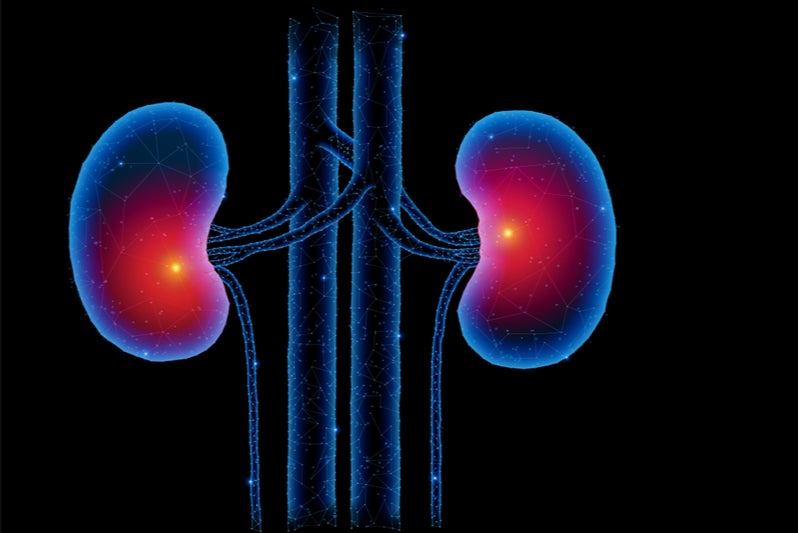Despite advances in the renal cell carcinoma (RCC) therapy landscape, the majority of patients with RCC will eventually develop resistance to available therapies and the disease will progress through several stages, requiring further lines of treatment.
According to the 2019 National Comprehensive Cancer Network (NCCN) Kidney Cancer guidelines, 20─30% of patients with stage I–III localised tumours will relapse after nephrectomy and progress to stage IV metastatic RCC (mRCC), which requires systemic drug therapy.
Key opinion leaders (KOLs) interviewed by GlobalData agreed that, on average, mRCC patients go through two to three lines of treatment, with refractory metastatic RCC often showing poor outcomes when treated with the currently available therapies.
Data presented at the European Society for Medical Oncology (ESMO 2019) Congress held in Barcelona from 29 September to 1 October suggested that pharmaceutical companies have also identified this unmet need and are now focusing on the development of combination treatments for heavily pre-treated and refractory patient populations.
On 30 September X4 Pharmaceuticals presented positive Phase IIa data of its first-in-class CXCR4 inhibitor, mavorixafor (X4P-001), in combination with Pfizer’s Inlyta (axitinib) as a third- to ninth-line therapy for the treatment of advanced RCC patients. The CXCR4 pathway is thought to contribute to the development of resistance to angiogenesis inhibitors. By blocking CXCR4, mavorixafor restores sensitivity to anti-vascular endothelial growth factor (anti-VEGF) agents such as Inlyta. In the trial, patients previously treated with a tyrosine kinase inhibitor (TKI) who received mavorixafor + Inlyta showed an overall response rate (ORR) of 18% and an increased median progression-free survival (mPFS) of 7.4 months, representing a 54% improvement from the 4.8 months previously observed with Inlyta monotherapy.
During ESMO, Calithera BioSciences also presented positive results from its Phase 2 ENTRATA study investigating telaglenastat (CB-839) in combination with Novartis’ Afinitor (everolimus) in heavily pre-treated RCC patients who received at least two prior lines of systemic therapy. Telaglenastat is a first-in-class glutaminase inhibitor specifically designed to inhibit glutamate metabolism in cancer cells. Because uptake of glutamate is upregulated in tumours, telaglenastat leads to substantial reduction of cancer cell growth. Telaglenastat + Afinitor doubled PFS to 3.8 months compared to 1.9 months with Afinitor monotherapy, and showed a 36% reduction in disease progression or death. Telaglenastat is also being investigated in the Phase 2 CANTATA study in combination with Exelixis’ Cabometyx (cabozantinib) in advanced or metastatic RCC patients who have progressed on one or two lines of therapy. On October 2, Calithera announced that it had completed enrollment to CANTATA ahead of schedule, with results for primary endpoints expected in Q3 2020.

US Tariffs are shifting - will you react or anticipate?
Don’t let policy changes catch you off guard. Stay proactive with real-time data and expert analysis.
By GlobalDataPharma giants, such as Bristol-Myers Squibb (BMS), are focusing on developing first-line combination treatments of immune checkpoint inhibitors, such as Opdivo (nivolumab) and Yervoy (ipilimumab), and of immune checkpoint inhibitors with TKIs, such as Merck & Co’s Keytruda (pembrolizumab) or Merck KGaA’s Bavencio (avelumab) with Inlyta. However, the emerging approach that has been enlisted not only by X4 Pharmaceuticals and Calithera BioSciences, is the development of novel agents in combination with well-established RCC drugs for the second line and later lines of treatment for refractory patients, rather than competing for the first line of treatment. The drugs’ potential to restore drug sensitivity and boost efficacy could prove to be an advantageous way to gain entry into the RCC market.
From a strategic point of view, the partnering-up of small biotech companies that are new to the market, such as X4 Pharmaceuticals and Calithera, with major players in the RCC landscape, such as Novartis and Pfizer, can facilitate their entry and improve their position in the RCC market. From a clinical perspective, these novel agents may gain the support of physicians more easily, as very few alternatives are available for patients who have progressed on the available standards of care. Therefore, using this approach to target refractory metastatic RCC would address a current unmet need for patients who are running out of therapy options and are difficult to manage.
Related reports
GlobalData (2014) EpiCast Report: Renal Cell Carcinoma – Epidemiology Forecast to 2023, August 2014, GDHCER032-14






